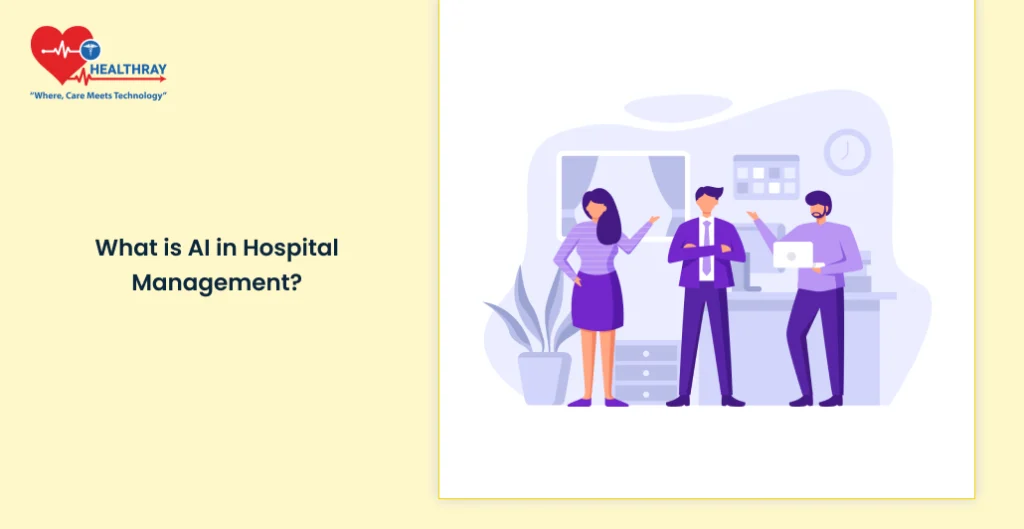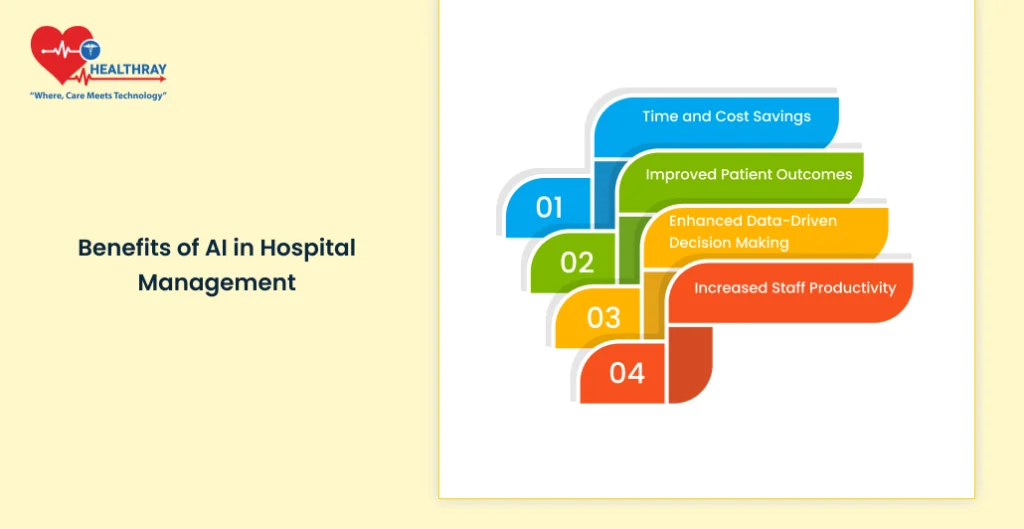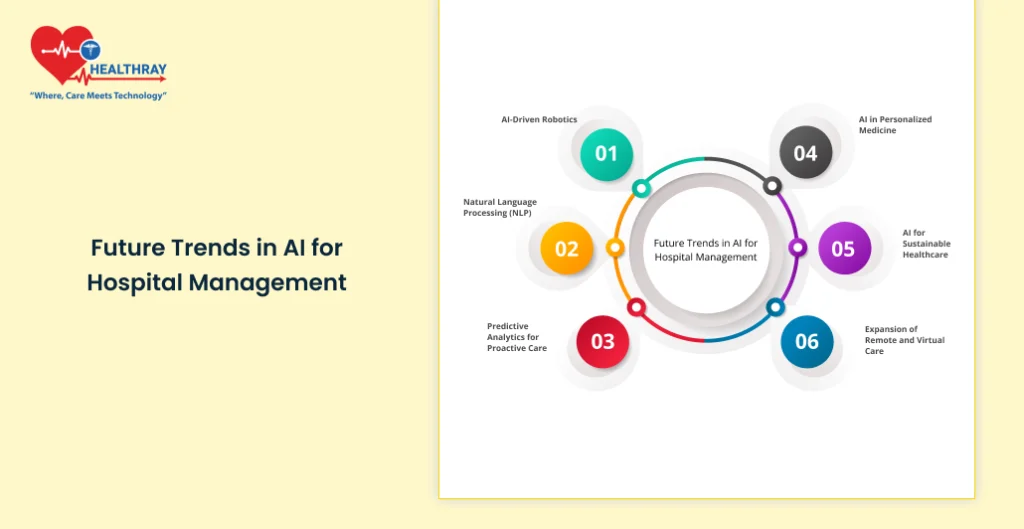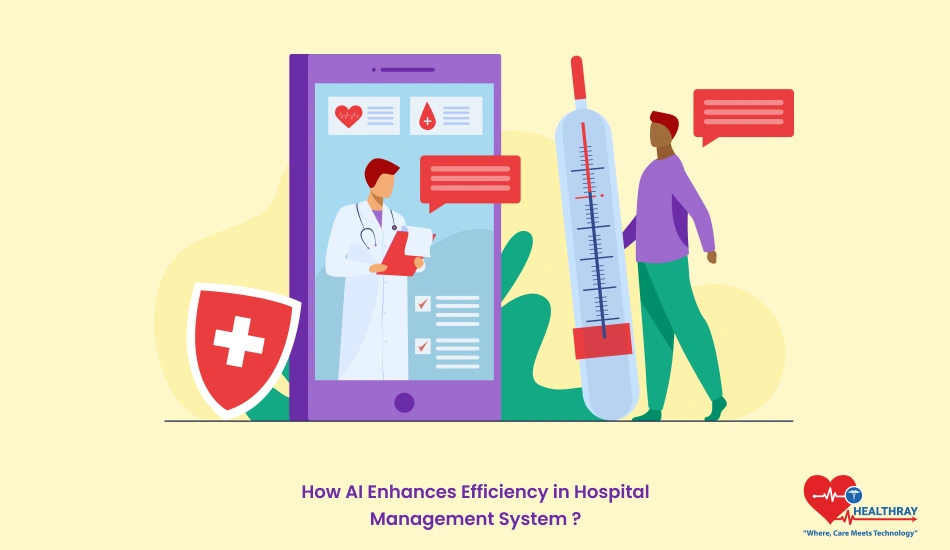AI is transforming the way hospitals operate, making processes faster, smarter, and more reliable. From automating mundane administrative tasks to analyzing patient data for quicker diagnoses, AI is becoming a critical part of hospital management systems. The result? Improved efficiency, better patient care, and cost savings for healthcare facilities.
But how exactly does AI fit into the day-to-day operations of a hospital? This post explores how AI is enhancing efficiency in hospital management systems, what areas it impacts most, and what the future holds for this exciting technology. Keep reading to discover how hospitals are leveraging AI to solve real-world challenges.
What is AI in Hospital Management?

AI, or artificial intelligence, refers to the use of advanced algorithms and machine learning models to mimic human decision-making and problem-solving processes. In the context of hospital management, AI is about leveraging these technologies to improve how healthcare facilities operate. It analyzes large datasets, automates repetitive tasks, and provides actionable insights that enhance efficiency and accuracy.
In the Hospital Information Management System, AI works hand-in-hand with existing IT infrastructures to streamline operations. From administrative processes to clinical workflows, AI adapts to various functions, reducing errors and saving valuable time. For example, it can predict patient admission trends based on historical data, ensuring resources like beds and staff are optimally allocated.
Hospitals are adopting AI to address challenges such as overcrowding, rising operational costs, increasing patient expectations, and to enhance marketing strategies for better patient engagement. As these technologies evolve, they’re becoming an indispensable part of modern healthcare.
Core Applications of AI in Hospital Management
AI is revolutionizing hospital management by tackling inefficiencies and enhancing operations. Here’s a closer look at the key areas where AI is making an impact:
Administrative Efficiency
Hospital administration often involves repetitive and time-consuming tasks. AI helps by:
- Automating Scheduling: AI systems streamline appointment booking, matching patient needs with doctor availability in real time.
- Billing and Coding: Automated systems handle medical billing, reducing errors and speeding up claim processing.
- Inventory Management: AI tracks and forecasts inventory needs, ensuring critical supplies are always available without overstocking.
Clinical Operations
AI plays a pivotal role in assisting medical professionals with clinical decision-making:
- Diagnosis Support: AI algorithms analyze medical images and lab results to detect abnormalities faster than traditional methods.
- Real-Time Monitoring: Wearable devices and AI-powered tools continuously track patient vitals, alerting staff to any irregularities.
- Treatment Optimization: AI evaluates patient data to recommend personalized treatment plans.
Resource Allocation
Efficient resource utilization is vital in hospital management, and AI simplifies this:
- Staff Scheduling: AI analyzes demand patterns to create optimized staff rosters, reducing burnout and improving patient care.
- Bed Management: AI tracks occupancy and predicts discharge times, ensuring beds are always available when needed.
- Admission Trends: Predictive analytics forecast patient inflow, allowing hospitals to prepare for peak periods.
Patient Engagement
AI enhances patient interaction and satisfaction through:
- Chatbots: These AI assistants provide answers to common questions, schedule appointments, and send reminders, making communication easier.
- Personalized Care Plans: AI uses patient data to develop tailored follow-up plans, improving recovery rates.
- Remote Monitoring: Tools powered by AI allow patients to be monitored from home, reducing hospital visits and maintaining continuity of care.
AI applications in hospital management go beyond just automating tasks—they enable smarter, data-driven decisions that enhance both operational efficiency and patient outcomes.
Benefits of AI in Hospital Management

AI is more than just a technological upgrade; it’s a game-changer for hospital management. By integrating AI into various operations, hospitals can improve efficiency, reduce costs, and deliver better patient care. Here’s a closer look at the benefits:
Time and Cost Savings
AI significantly reduces the time spent on repetitive tasks, such as data entry, scheduling, and billing. With automation, hospitals:
- Cut down administrative workload.
- Minimize errors that can lead to costly corrections.
- Optimize resource usage, avoiding unnecessary expenses.
For example, automating inventory management ensures hospitals maintain adequate supplies without overstocking, reducing waste and costs.
Improved Patient Outcomes
AI-powered tools contribute to better and faster medical decisions. Hospitals using AI benefit from:
- Faster Diagnoses: AI analyzes medical images and lab results quickly, allowing doctors to act promptly.
- Precision Medicine: Personalized treatment plans developed through AI result in higher success rates and better recovery times.
- Continuous Monitoring: AI tools monitor patients in real time, enabling early intervention when anomalies are detected.
Enhanced Data-Driven Decision Making
Hospitals generate vast amounts of data daily, and AI transforms this data into actionable insights:
- Identifying trends in patient admissions.
- Predicting future needs for staff and resources.
- Providing insights for improving overall hospital operations.
With these insights, hospital administrators can make informed decisions to improve efficiency and patient satisfaction.
Increased Staff Productivity
AI takes care of routine administrative tasks, allowing healthcare professionals to focus on patient care. For example:
- Automating appointment reminders reduces no-shows, ensuring better scheduling efficiency.
- Predictive staffing ensures the right number of personnel is available at any given time, avoiding both understaffing and overstaffing.
Challenges in AI Implementation
While AI offers numerous advantages for hospital management, adopting this technology isn’t without its challenges. Hospitals need to address several hurdles to make the most of AI solutions. Here’s what they commonly face:
High Initial Costs
Implementing AI systems requires significant investment. Costs can include:
- Upgrading existing IT infrastructure.
- Purchasing AI-powered tools and software.
- Training staff to operate and integrate these technologies.
For many hospitals, especially smaller facilities, these upfront expenses can be a barrier. However, the long-term savings and operational efficiency often justify the initial cost.
Data Privacy and Security
AI relies heavily on patient data to function effectively, raising concerns about privacy and security. Key challenges include:
- Ensuring compliance with healthcare regulations like HIPAA.
- Protecting sensitive patient information from cyber threats.
- Managing ethical concerns about data ownership and usage.
Hospitals must implement robust cybersecurity measures to safeguard patient data while using AI.
Staff Training and Adoption
AI systems require skilled operators and seamless integration into existing workflows. Hospitals often encounter:
- Resistance to Change: Staff may hesitate to adopt AI due to fear of job displacement or a steep learning curve.
- Skill Gaps: Training programs are essential to help employees understand and use AI effectively.
A collaborative approach, where AI supports staff rather than replacing them, can ease this transition.
Integration with Legacy Systems
Many hospitals rely on outdated IT systems that may not be compatible with AI technology. Challenges include:
- Adapting AI to work alongside existing software.
- Managing disruptions during the implementation phase.
- Ensuring system-wide interoperability for smooth data flow.
Planning a phased rollout and working with experienced AI vendors can help hospitals address these issues.
Ethical and Legal Concerns
AI in healthcare raises unique ethical questions, such as:
- Who is accountable when AI makes an incorrect decision?
- How transparent should AI algorithms be when used in clinical settings?
Hospitals must navigate these concerns carefully, ensuring AI is used responsibly and in patients’ best interests.
Case Studies and Real-World Examples
Real-world examples demonstrate how hospitals are successfully implementing AI to improve efficiency and patient care. Here are a few notable cases:
Automating Administrative Tasks
A large hospital network in the United States implemented AI-powered scheduling and billing systems. The outcomes were:
- Reduction in Scheduling Errors: AI streamlined appointment bookings, leading to a 25% drop in missed appointments.
- Faster Billing Cycles: Automation reduced claim processing times by 40%, improving cash flow.
These improvements allowed administrative staff to focus more on patient interactions rather than paperwork.
Predictive Resource Allocation
A hospital system in Europe used AI to predict patient admission trends based on historical data and external factors like seasonal illnesses. The system helped:
- Optimize Staffing: Predictive analytics ensured the right number of medical personnel was on duty during peak times.
- Manage Bed Occupancy: Real-time tracking improved bed availability, reducing patient wait times.
The result was a noticeable increase in patient satisfaction scores and more efficient use of hospital resources.
Enhancing Clinical Decision-Making
An AI diagnostic tool was introduced in a South Asian hospital to support radiologists in analyzing X-rays and CT scans. Key results included:
- Improved Accuracy: The AI system identified abnormalities with 95% accuracy, reducing diagnostic errors.
- Faster Diagnosis: Processing times for scans decreased by 30%, enabling quicker treatment decisions.
Doctors reported that the tool acted as a reliable second opinion, enhancing their confidence in making critical decisions.
Patient Engagement
A hospital in Canada implemented an AI chatbot for outpatient support. The chatbot:
- Answered common patient queries, such as medication schedules and follow-up appointments.
- Sent automated reminders for upcoming visits.
The AI assistant reduced the load on call centers and improved communication with patients, leading to higher engagement and satisfaction.
Future Trends in AI for Hospital Management

AI technology continues to evolve, promising even greater efficiency and innovation in HMS Systems. Here are some key trends shaping the future:
AI-Driven Robotics
Robotic systems powered by AI are being integrated into hospitals for tasks like:
- Surgery Assistance: AI-guided robots enhance precision in complex procedures.
- Logistics: Robots are automating tasks like transporting supplies and medications within hospital premises.
These advancements reduce the workload on staff and improve overall operational efficiency.
Natural Language Processing (NLP)
AI systems using NLP are transforming how hospitals manage unstructured data. Applications include:
- Medical Record Analysis: Extracting actionable insights from patient records and clinical notes.
- Virtual Assistants: AI-powered tools that understand and respond to staff and patient queries.
As NLP technology improves, it will help hospitals make better use of their vast data repositories.
Predictive Analytics for Proactive Care
AI is moving beyond real-time monitoring to predictive capabilities, allowing hospitals to:
- Identify Risks Early: AI can predict complications or deterioration in patient health.
- Prevent Readmissions: By analyzing patient history, AI suggests personalized post-discharge plans.
This shift from reactive to proactive care could significantly improve patient outcomes and reduce costs.
AI in Personalized Medicine
Future hospital management systems will integrate AI to create highly personalized treatment plans. These systems will:
- Use patient genetic data for tailored drug therapies.
- Adjust care plans dynamically based on real-time patient data.
This level of personalization enhances treatment success rates and patient satisfaction.
AI for Sustainable Healthcare
AI is also expected to play a role in sustainability efforts by:
- Optimizing energy usage in hospital facilities.
- Reducing waste through efficient inventory and resource management.
These innovations will not only improve efficiency but also contribute to environmentally conscious healthcare practices.
Expansion of Remote and Virtual Care
Telemedicine and remote monitoring will grow with AI enhancements. Hospitals will rely more on:
- AI-driven diagnostic tools to support virtual consultations.
- Wearable devices for continuous patient health tracking.
These trends will make healthcare more accessible and reduce the burden on hospital facilities.
Conclusion
AI is transforming HMS Systems, offering solutions to some of the most pressing challenges in healthcare. From automating repetitive tasks to improving clinical decision-making, AI is helping hospitals save time, cut costs, and deliver better care to patients.
The benefits are clear—enhanced efficiency, personalized treatments, and predictive insights that enable proactive care. While there are challenges like high costs and data security concerns, hospitals that invest in AI are seeing significant returns in both operational efficiency and patient satisfaction.
As technology continues to evolve, the integration of AI in hospital management systems will only deepen. Hospitals that embrace this shift early will be better positioned to provide high-quality care in an increasingly data-driven world.





